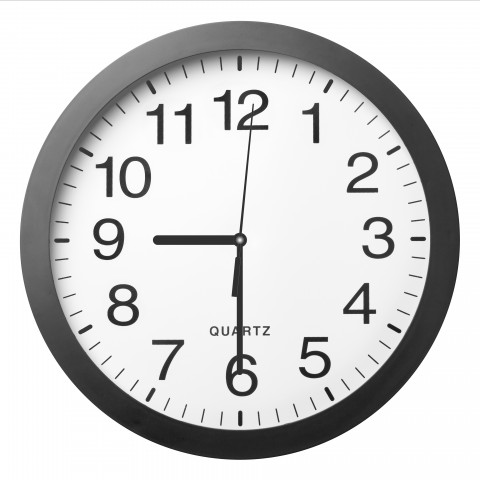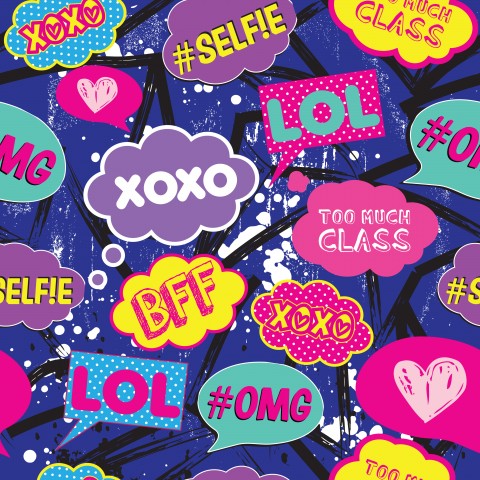
In recent years, we communicate through technology more than we do in person. While this modern way of human interaction certainly has many perks, it can sometimes cause a lot of confusion or misunderstandings. Why? It’s very difficult to express emotions because not everyone is a Dickens, you know? Another thing: There’s not always enough time to explain everything in great detail. Did you know that you’re able to say 100 – 160 words, but you can only type around 40 words?
Luckily, us humans are smart—we figure things out.
Today, you’ll learn about Czech internet slang so you can keep up with this fast-paced technological world. Internet slang has been around since the early days of the internet, of course, but it has evolved and grown over the years. You could even say it’s a language of its own.
Another point to note is that in Czech, we use a lot of English phrases, which we often type phonetically to add a little more authenticity…no, just because it’s more fun. 🙂
Let’s explore Czech internet and text slang together!
 Table of Contents
Table of Contents
- Czech Text Slang
- Czech Internet and Computer Slang Phrases and Words
- How CzechClass101.com Can Help You Learn Czech in a Fun Way
1. Czech Text Slang
It’s a little surprising, but “Czech text slang” isn’t really a thing. Young Czechs use a lot of English abbreviations and phrases. However, you probably won’t be able to tell because we pronounce them “the Czech way,” which makes them unrecognizable to an untrained ear.
The Czech text vocab is very laconic, and since BRB is long gone (honestly, who doesn’t check their phone at least a few times an hour, right?) and LOL was pushed away by many cute emojis, I don’t have any sparkly Czech surprises for you.
You might want to start with this short list of Czech texting vocabulary first, and when you’re ready, study the Czech text slang.
Let’s look at the most common Czech texting phrases:
| Czech | English |
| Jak se vede? / Jak je? | How are you? |
| Co děláš? / Co provádíš? | What have you been up to? |
| Mám se dobře. | I’m doing okay. |
| Normálka. / Normálně. | I’m doing normal. |
| Fajn. / V pohodě. | Fine. |
| Nudím se. / Nuda. | I’m bored. |
| Nechceš něco podniknout? | Wanna do something? / Wanna hang out? |
| Jdeme ven? | Let’s go out? |
| Nechceš někam vyrazit? | Wanna go someplace? |
| Máš čas? | Do you have time? |
| Co děláš? | What are you doing? (as in: What’s up?) |
| Děláš něco? | Are you doing anything? |
| Co ty? / A ty? | And you? |
| Tak jo! | OK! (“So yeah!”) |
As you can see, the Czech slang expressions (with a few exceptions) are just shorter versions of regular phrases that you would use in face-to-face conversation. What might confuse you is the lack of personal pronouns. That is actually correct because in Czech, we use them mostly for emphasis and in questions. Check out our vocabulary list Most Useful Czech Pronouns, where you’ll find 32 Czech pronouns along with an audio recording of their pronunciation.

Máš čas? – “Do you have time?”
A- Numbers and Time in Texts
I want to mention this because I recently found out that it’s a little confusing to foreigners.
We use the 24-hour clock, meaning there’s no AM/PM for us. Timetables, movie theater programs, and schedules use the thing that you might only know from the Arrivals/Departures screens at the airport.
BUT! There’s a but.
We only use the 24-hour clock in written conversations. In other words, your friend will tell you that she’ll pick you up ve dvě (“at two”) if everything goes well, and later you’ll get a text from her that reads “everything okay, I’ll pick you up at 14:00 as planned.”
- In verbal form, we’d add ráno or dopoledne (“in the morning”), odpoledne (“in the afternoon”), večer (“in the evening”), or v noci (“at night”) to clarify what time we actually mean—if needed.

9:30 or 21:30?
Please keep this in mind, and don’t be discouraged if you get confused. I sometimes forget about it too, even though I’m a native Czech living in the Czech Republic. The lady who called me about my scheduled Christmas tree delivery was pretty surprised when I blurted out: “Oh, you mean at ten in the morning, right?”
B- Czech Text, Gaming, and Internet Abbreviations and Vocab
| Czech | English |
| JJ / jj (short for jo jo) | Yeah yeah |
| NN / nn (short for ne ne) | No no |
| TVL / TWL (ty vole) | Dude! / Jeez! |
| DPČ | My *ss (just a lot ruder, beware) |
| ASAP | ASAP |
| FYI | FYI |
| OMG | OMG |
| NJN / njn (short for no jo no) | Oh well, yeah |
| hhh | Ha ha ha |
| Napsat SMS | To text |
| Napsat | To text / send a message |
| Napíšu ti později | I’ll send you a message later (“I’ll write to you”) |
| Zavolat | To make a phone call |
| Zavolám ti později | I’ll call you later |
| Kdo ti píše? | Who’s texting you? |
| O5 (opět – pět means “5” in Czech) | again |
| Ď /ď /d (short for děkuji) | thanks |
| Houby! (“Mushrooms!”) | You’re kidding! |
| Fakt? / Fakt, jo? | Really? |
| Kecáš! | You’re kidding! |
| Nekecej! | You must be kidding! / No way! |
| ok | OK |
As you can see, Czech slang phrases are pretty straightforward, nothing too exciting or sophisticated.
There’s one thing you need to know about ty vole: it means “you ox,” but we don’t use it in an offensive way. It’s a fluff phrase that’s used to express a very, very casual way of communication.
Your boss wouldn’t be impressed if you called them vole, and you definitely don’t want to use it at family gatherings either.
How do native Czechs actually use this intriguing phrase?
C- Example Text Conversation
A: Čau, jaké bylo včera rande? (“Hey, how was your date last night?”)
B: Ty vole, byla to hrůza! (“You ox, it was awful!”)
A: Kecáš! (“You’re kidding!”)
B: Fakt. Opila se a pořád mluvila o svým ex. (“Really. She got drunk and talked about her ex nonstop.”)
A: Houby! (“You’re kidding!”)
B: JJ, fakt hrůza. (“Yep, awful.”)
When you want to ask someone out/hang out with a friend.
A: Čau, jak je? (“Hey, how are you doing??”)
B: Fajn, co ty? (“Fine, and you?”)
A: Normálka. Děláš něco? (“Normal. Are you doing anything?”)
B: Ani ne. (“Not really.”)
A: Nechceš někam vyrazit? (“Wanna hang out?”)B: Tak jo! (“OK!”)

Czechs use most of the English internet slang words.
2. Czech Internet and Computer Slang Phrases and Words

| Czech | English |
| follower / followeři | follower / followers |
| views / shlédnutí | views |
| influencer / influenceři | influencer / influencers |
| odběry | subscriptions |
| kanály | channels |
| Instáč / Insta | |
| brouzdat | to browse |
| jít na net / jít na internet | to go on the internet (to look up something) |
| skrolovat / scrolovat | to scroll |
| surfovat | to surf the internet |
| četovat / chatovat | to chat |
| fleška | flash drive |
| gamesa / gameska | video game |
| googlovat / googlit | to Google |
| heknout / hacknout | to hack |
| komp / kompl | computer |
| pařan | gamer |
| písíčko | PC |
| foun | phone |
| úesbéčko | USB |
| wifina | wi-fi |
| pařit / zapařit | to play a video game |
| Vyhazuje to hlášku | It’s showing a pop-up window or notification |
| net | internet |
As you can see, Czechs use a lot of English words and often type them out phonetically, decline or conjugate them, and pronounce them phonetically.
I highly recommend strengthening your listening skills in order to get ready for this. Other than that, just go with the flow.

Nefunguje mi wifina. – “My wifi isn’t working.”
A- Example Conversation
A: Čau, nechceš dneska zapařit? (“Hey, wanna play a video game today?”)
B: Nemůžu, vyhazuje to hlášku, že mi nefunguje wifina. (“I can’t, a message keeps popping up that my wifi isn’t working.”)
A: Vygoogli si to a oprav to. (“Google it and fix it.”)
B: Tak jo, jdu na net na telefonu. (“Okay, I’m going on the internet on my phone.”)
B- How to Master Czech Internet Slang Expressions
We do text a lot and we like to use abbreviations. There are only a few Czech abbreviations that are not derived from English (yay, less things that you’ll need to memorize).
- ➢ One thing you need to know (and I admit it might make your life harder): Colloquial Czech is nothing like the polished stuff you see in textbooks. The spelling is different (a.k.a. more relaxed), which might be very confusing.
- ➢ Also, many people don’t use diacritics when texting/typing emails on their phones. You’ll get used to it eventually, but I strongly suggest you focus on slang and the “real” Czech early on. This article sums it up very well, so grab a cup of coffee and read on!
My personal recommendations:
- Don’t underestimate the power of slang, colloquial phrases, and expressions, especially if you’re planning to live in the Czech Republic or want to be friends with native Czech speakers.
- Make sure your vocabulary base is strong and reasonably wide. (These awesome vocab lists will help you a ton. They’re organized and divided into various topics, and you’ll actually use these words in real life).
- If you struggle with this, try to make learning as much fun as possible. You could watch Czech TV shows with subtitles, for example. You need to hear and see the words you’re trying to remember.
- Download an app that you can use while commuting or waiting in line, reward yourself, know your whys, and keep things fresh.
- Do not avoid slang words. Read them often and use them in your daily texts (if appropriate, of course).
3. How CzechClass101.com Can Help You Learn Czech in a Fun Way
That’s it, guys! I hope you enjoyed this article and learned something new! Have fun texting in Czech!
In case this wasn’t enough for you, please check out our Basic Bootcamp series—it presents the very basic grammar and vocab in five compact lessons.
If you’re taking your Czech studies seriously, and want to learn Czech fast, free, and online, you need to explore all that CzechClass101 has to offer.
CzechClass101.com will make learning Czech easy, exciting, and fun. With us, it’s not about endless memorizing or thick textbooks. Learn Czech the better way—with us, you’ll make progress faster than you could imagine!
What can you find here?
- English-to-Czech translation and pronunciation tips/tricks
- Over 630 audio and video lessons
- Vocabulary learning tools
- Spaced repetition flashcards
- Detailed PDF lesson notes
Sign up now, it’s free!
One last thing: Let us know in the comments if this article helped you, and if you feel inspired to start (or continue) learning Czech now!










